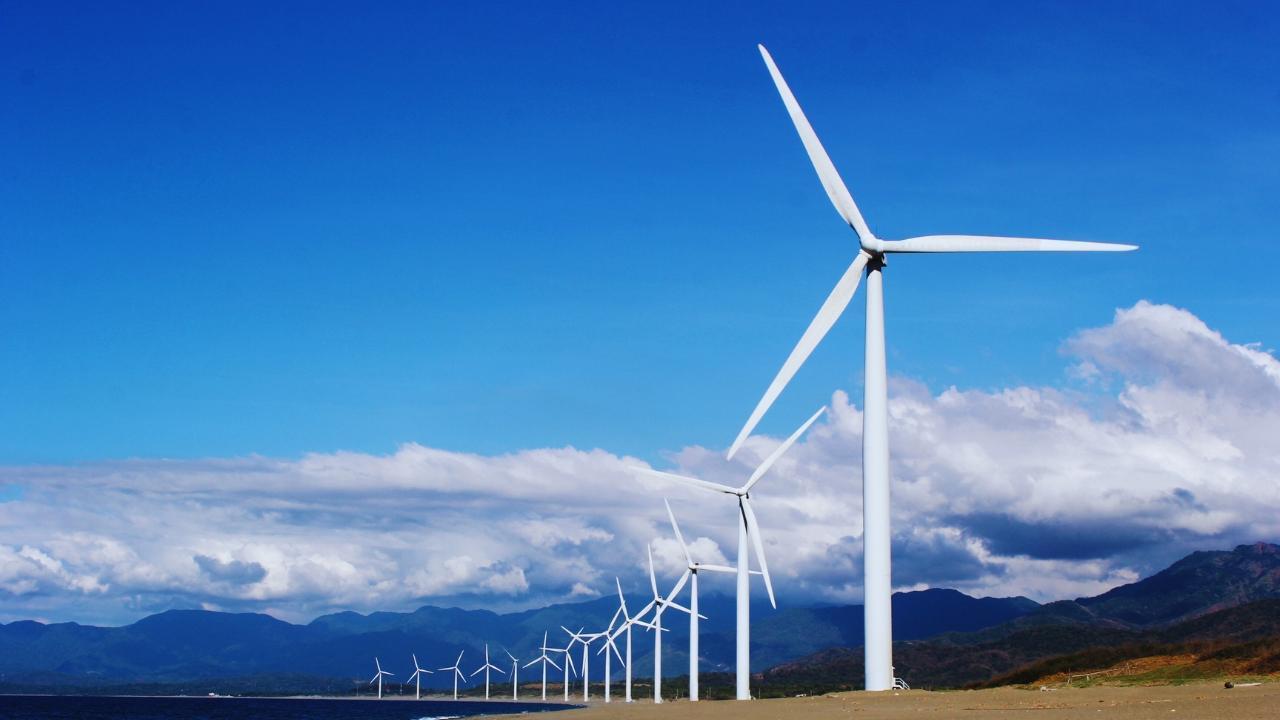You have not yet added any article to your bookmarks!

Join 10k+ people to get notified about new posts, news and tips.
Do not worry we don't spam!

Post by : Anis Farhan
Indonesia, the largest economy in Southeast Asia, is setting ambitious targets to transform its energy landscape. With plans to generate 70% of its electricity from renewable sources by 2030, the country is signaling a major shift away from coal, which has long been the backbone of its power generation. This commitment aligns with global climate goals and Indonesia’s pledge under the Paris Agreement, but the journey ahead is filled with challenges.
The government’s energy transition roadmap emphasizes the expansion of solar, wind, hydropower, and geothermal energy. Indonesia’s geographical position gives it a significant advantage in renewable energy development. The archipelago’s abundant sunlight, strong wind corridors, and extensive geothermal reserves provide immense untapped potential. Current estimates suggest Indonesia has over 400 gigawatts of renewable energy capacity, most of which remains undeveloped.
Officials have stated that the primary goal is not only reducing carbon emissions but also ensuring energy security and stability for the growing population and industries. The transition will also help diversify energy sources, reducing reliance on volatile global coal and fossil fuel markets.
Despite the ambitious targets, Indonesia faces several obstacles. Coal remains deeply entrenched in the national energy system, supplying more than 60% of electricity. State-owned companies and private investors have billions invested in coal infrastructure, making a quick transition economically complex.
Financing renewable energy projects is another hurdle. Although international organizations and climate funds are pledging support, the actual disbursement of funds and the development of bankable projects often face bureaucratic delays. In addition, the cost of renewable energy technologies, while decreasing globally, still poses challenges for large-scale deployment in Indonesia, especially in remote regions.
Another critical issue is the need for grid modernization. Renewable energy sources, particularly solar and wind, require flexible and smart grids to manage variability in power generation. Indonesia’s existing transmission infrastructure needs significant upgrades to accommodate the planned influx of renewable energy.
Indonesia’s renewable energy transition is also influenced by international climate commitments and domestic socio-economic factors. The country is under increasing pressure from global investors and trading partners to decarbonize its energy sector. Major economies, including the European Union and the United States, are linking trade preferences to environmental performance, adding urgency to the energy shift.
Domestically, the government must balance environmental goals with economic development. Millions of Indonesians rely on affordable electricity, and coal has traditionally provided a low-cost option. Any transition that increases energy prices could face public resistance. Therefore, policymakers are prioritizing strategies that maintain affordability while introducing renewables.
While challenging, the renewable energy transition presents significant economic opportunities. Developing solar farms, wind turbines, and geothermal plants will create thousands of new jobs across engineering, manufacturing, and maintenance sectors. The government is also promoting local content requirements to ensure domestic industries benefit from this transformation.
Indonesia aims to position itself as a key player in the global green economy by investing in renewable technology manufacturing, such as solar panels and battery storage systems. This strategy could help the country reduce imports, improve trade balances, and foster innovation.
To meet its 70% renewable energy goal, Indonesia is actively seeking international collaboration. Partnerships with countries like Japan, South Korea, and members of the European Union have been instrumental in securing technology transfer and financial support. The Just Energy Transition Partnership (JETP), involving G7 nations, has pledged billions to assist Indonesia’s coal phase-out and renewable energy development.
Additionally, global private investors are increasingly interested in Indonesia’s renewable sector, particularly in solar and geothermal projects. However, ensuring transparent regulatory frameworks and reducing red tape will be crucial to sustaining investor confidence.
Policy reforms are central to accelerating Indonesia’s energy transition. The government has introduced incentives such as tax holidays, subsidies, and feed-in tariffs for renewable energy developers. New regulations also require power utilities to prioritize renewable sources and limit the approval of new coal-fired power plants.
Experts suggest that strong enforcement mechanisms and consistent policy signals are critical. Sudden regulatory changes could deter investors and slow progress. Therefore, long-term stability in energy policy will remain a top priority for the government.
The shift toward renewable energy will significantly reduce Indonesia’s carbon emissions, improve air quality, and decrease environmental degradation caused by coal mining. Renewable projects are generally more sustainable, requiring less water and reducing the risk of ecological damage. This transition is expected to bring health benefits to communities currently exposed to coal-related pollution.
Socially, expanding renewable energy in rural areas can improve energy access for millions of Indonesians living in remote regions. Off-grid solar and mini-hydro systems are particularly suitable for islands that are difficult to connect to the national grid.
Indonesia’s goal of achieving 70% renewable energy by 2030 is bold and commendable. However, success will depend on a combination of strong political will, robust financing mechanisms, technological advancements, and public support. With the right policies and international partnerships, Indonesia has the potential to lead Southeast Asia in renewable energy adoption.
The coming years will test Indonesia’s ability to balance environmental sustainability with economic growth. If the country successfully navigates these challenges, it will not only secure its energy future but also set an example for other developing economies striving for a greener tomorrow.
The information presented in this article is for informational purposes only. While every effort has been made to ensure accuracy, energy policies and projections may change over time due to evolving market conditions and government regulations. Readers are encouraged to verify data and consult official sources before making decisions based on this content.










Rashmika Mandanna, Vijay Deverakonda Set to Marry on Feb 26
Rashmika Mandanna and Vijay Deverakonda are reportedly set to marry on February 26, 2026, in a priva

FIFA Stands by 2026 World Cup Ticket Prices Despite Fan Criticism
FIFA defends the high ticket prices for the 2026 World Cup, introducing a $60 tier to make matches m

Trump Claims He Ended India-Pakistan War, Faces Strong Denial
Donald Trump says he brokered the ceasefire between India and Pakistan and resolved eight wars, but

Two Telangana Women Die in California Road Accident, Families Seek Help
Two Telangana women pursuing Master's in the US died in a tragic California crash. Families urge gov

Ranveer Singh’s Dhurandhar Roars Past ₹1100 Cr Worldwide
Ranveer Singh’s Dhurandhar stays unstoppable in week four, crossing ₹1100 crore globally and overtak

Asian Stocks Surge as Dollar Dips, Silver Hits $80 Amid Rate Cut Hopes
Asian markets rally to six-week highs while silver breaks $80, driven by Federal Reserve rate cut ex